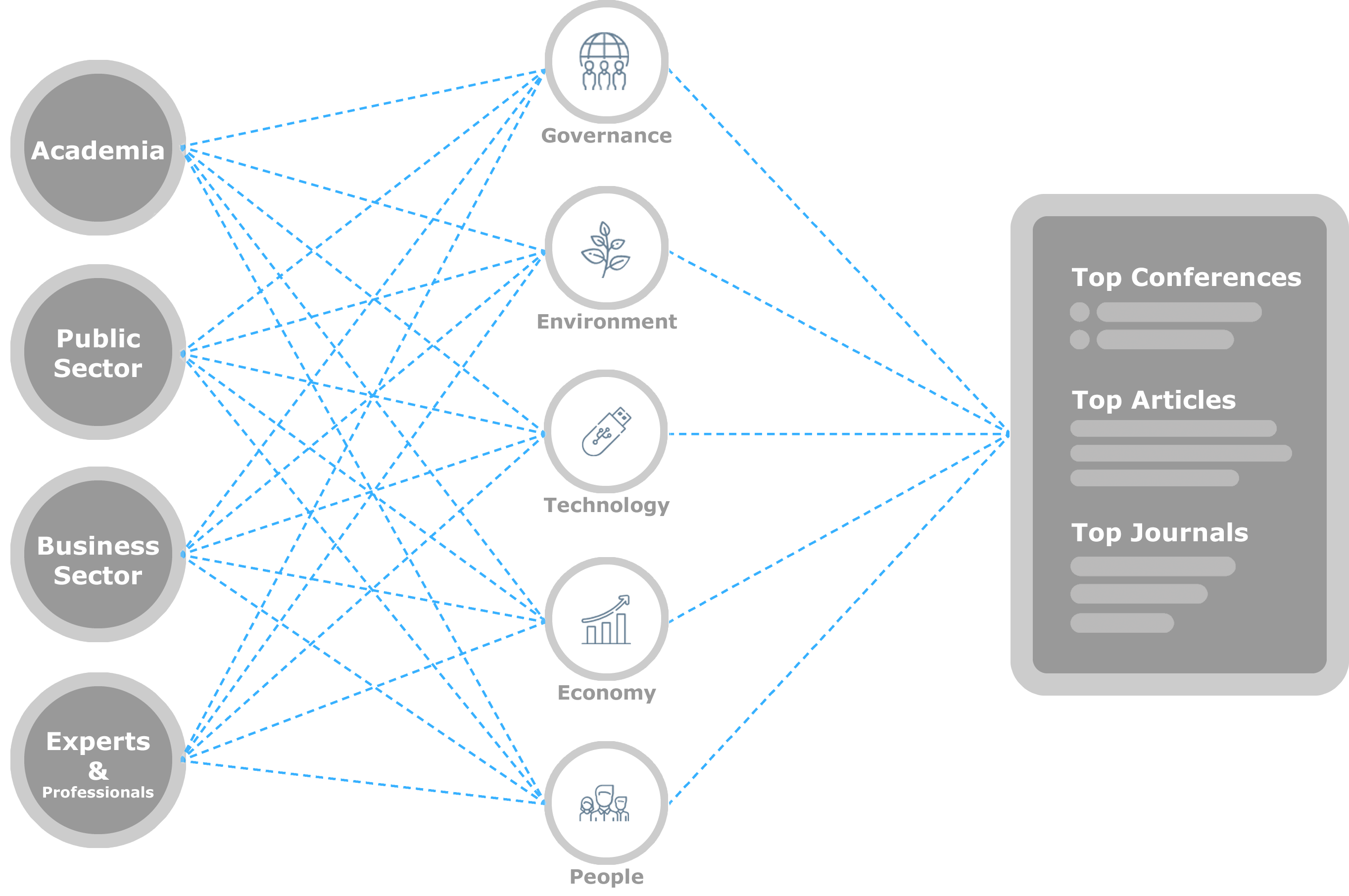What is all about?
The National University of Political Studies and Public Administration (SNSPA) has launched a pioneering initiative through its Faculty of Public Administration, aiming to foster an inclusive and formal dialogue on Smart Cities issues. This initiative is designed to bring together a diverse array of stakeholders, including representatives from governments, intergovernmental organizations, the private sector, the technical community, academia, and civil society. The goal is to facilitate multistakeholder discussions, exchanges, and collaborations on topics related to Smart Cities.
Our smart objectives are:
- Raise Awareness: Promote a better understanding of the Smart Cities concept among all stakeholders.
- Capacity Building: Strengthen the ability of stakeholders to actively participate in the development of Smart Cities at national, regional, and international levels.
- Facilitate Collaboration: Enable discussions, exchanges, and collaborative efforts on Smart Cities issues that are of particular concern to stakeholders.
- Create Linkages: Establish connections between the realities of Smart Cities at the national, European, and international levels.
The first Smart Cities event, "Conferința Orașul Inteligent" (Smart Cities Conference), was held on November 28, 2013, marking a significant milestone as the first of its kind in Romania. This event underscored the visionary role played by academia in research and development, continuously exploring new trends to build a brighter future.

Our Network
The Smart-EDU Hub facilitates interactions among key sectors and focuses on five core areas:
- Academia: Engaging researchers and scholars to provide theoretical and empirical insights.
- Public Sector: Involving governmental bodies to address policy and regulatory aspects.
- Business Sector: Collaborating with the private sector to leverage technological innovations and investments.
- Experts & Professionals: Bringing in technical expertise to solve complex challenges.
These interactions are centered around the following key thematic areas:
- Governance: Exploring effective governance models for Smart Cities.
- Environment: Promoting sustainable practices and environmental stewardship.
- Technology: Integrating advanced technologies to enhance urban living.
- Economy: Fostering economic growth and development through smart solutions.
- People: Ensuring that Smart Cities are inclusive and cater to the needs of all citizens.
The Smart-EDU Hub serves as a dynamic platform where top conferences, leading articles and prestigious journals, R&D projects, courses, hackathons and other interesting scientific events drive the Smart Cities agenda forward. Join us in this collaborative journey to shape the cities of the future, where innovation meets inclusivity, and sustainability becomes a reality.